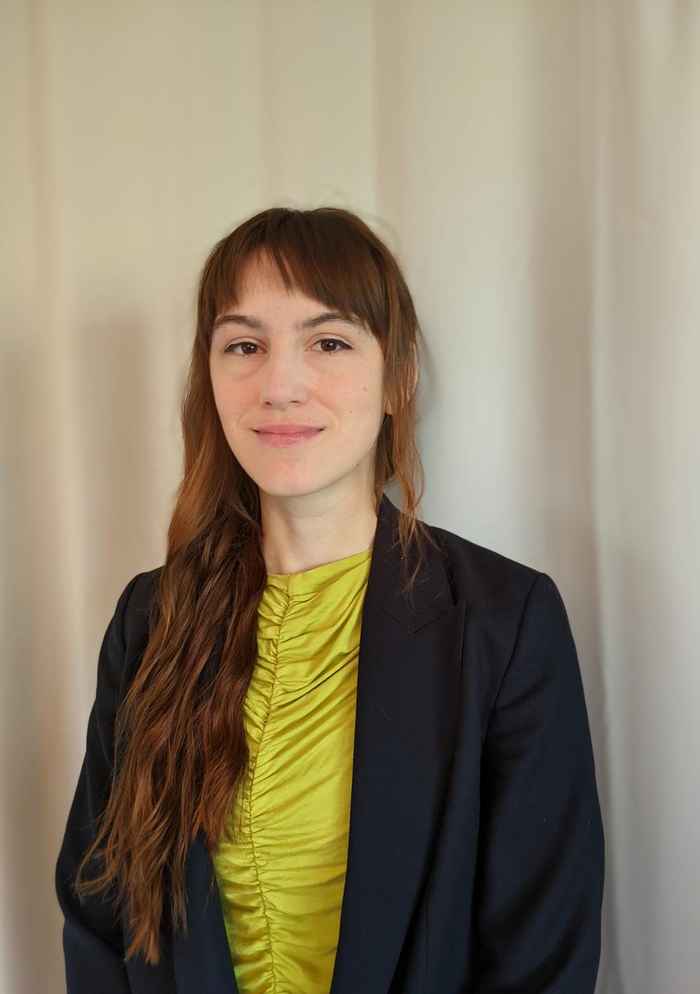Vossius Research Fellow Anna Simon-Stickley
5 September 2023

About the project
“Climate scientists,” the historian Paul Edwards has recently observed, “are historians” – revisiting the same events, “digging through archives to ferret out new evidence,” without ever obtaining a “single, unshakable narrative.” But centuries before climate change, famous scholars such as Robert Hooke and later Georges Cuvier spoke of fossils as nature’s monuments and coins. Not merely metaphorical, Martin Rudwick has pointed out that geologists around 1800 drew heavily on the work and concepts of biblical chronologers, antiquarians, and historians to re-formulate the knowledge of the earth as a historical discipline.
Taking cue from these considerations, in this dissertation project, I explore how and why the humanities and natural sciences interacted in the writing of deep history. To do this, I am looking at four interlinked cases that took place between 1800 and 1914 in Egypt with forays into the Middle East more broadly. Here, the textual and monumental record stretched back furthest, ideal conditions for comparing evidence from natural and artefactual sources. The first chapter looks at entanglements between geology and fluvial geomorphology with archaeology, specifically the use of monuments as chronological benchmarks – vital knowledge for harnessing the river. The second sheds light on the application geo-historical dating methods to Egyptian prehistory, which preceded any written records. The third focuses on plant and animal remains found in pyramids and other tombs, and how they were incorporated into different stories about and scales of the distant past: pre-darwinian evolutionary schemes, biogeographic histories and climate histories, as well as histories of culture and cultivation. While textual sources were used in all of these endeavours (mostly Greek and Roman, but also Medieval Arab authors and occasionally ancient Egyptian sources), the last chapter focusses specifically on the use of textual and archival sources for writing the history of Middle Eastern landscapes and climates – and their supposed ‘restoration’ in colonial irrigation projects.
On a higher level, this thesis engages with and is inspired by three current debates: Firstly, the historiography of deep time, climate science, and the ‘pre-history’ of the Anthropocene, which has overwhelmingly focussed on the earth (system) sciences in the later twentieth century and the West, and has mostly ignored contribution of the humanities to geo-historical and climate knowledge. The same goes for the newer historiography of the humanities, and this although science-humanities entanglements have recently become a major research focus. I aim to show that the humanities were not only essential to knowing nature but also to exploiting it in a global, colonial framework. Thirdly, I explore the emergence of modern historical consciousness – a classic theme in intellectual history that has recently been actively renegotiated in the wake of the Anthropocene thesis – to disciplines beyond history and territories beyond Europe. Conceptions of (deep) time, I argue, were essentially shaped by straddling solidifying disciplinary boundaries and by confrontations with non-European contexts.
About the researcher
Anna Simon-Stickley is a doctoral fellow in the Graduate School Global Intellectual History at the Freie Universität zu Berlin. Before joining the Graduate School, Anna first completed a Bachelors in Art History at Freie Universität Berlin, which she finished with a thesis on contemporary artistic research on the Anthropocene. This work introduced her to the history of science, which she henceforth pursued in her master’s degree at Technische Universität Berlin. During her master’s, she explored the role of material media and practical knowledge in the 19-century life sciences especially – from early eye-tracking devices to botanical drawings from India – and has published on the history of instruments as well as on the intellectual history of the Anthropocene concept. Besides academic work, Anna has also worked as a freelance editor and translator, recently translating a 850-page book on the history and theory of Conceptual History and Historical Semantics (forthcoming 2024).